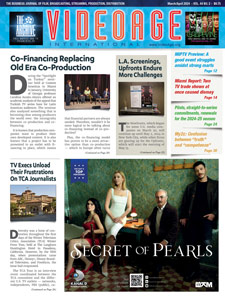Routinely, U.S. TV network executives, for one reason or another, have the urge to change the paradigms of the television business. Usually, it is for financial reasons (to save a few million dollars), as in the case of trying to do away with pilots. But these moves tend to result in audience flops more than financial flips.
Then there’s the move toward trying to do away with the fall season premiere schedule in an attempt to compete with cable (which gets a fraction of the audience FTA does) and digital (which, according to Nielsen, actually increase FTA viewing, though for a shorter period).
Indeed, it’s been over a decade now since we’ve been hearing about the U.S. networks’ year-round programming. And while it’s true that some of the most critically acclaimed shows premiere at the beginning of the year, and now even in the summer, the fall TV season isn’t dead yet, wrote Mike Hale, a New York Times TV critic. And we’d have to agree. (Also important to note: the Upfronts aren’t dead either, though people have, for years, been saying that they don’t fit the current TV schedule and system).
But Hale points out that 80 new and returning network shows will be rolled out this fall season (which started nearly two weeks ago). Include cable and streaming in that list, and you can add another 35 series.
According to Hale: “Fall has become TV’s equivalent of the summer movie season — it’s popcorn time, the concentrated period in which profits need to be made. Fall is still where most of the tent-pole franchises reside, the remaining handful of shows capable of drawing a critical mass of viewers week in and week out — The Big Bang Theory, NCIS, Empire and, on the cable side, The Walking Dead, the highest-rated scripted show in the 18-to-49 demographic that advertisers find so desirable.”
And he points out that several of the new shows are actually based on popular Hollywood films (including Fox’s Lethal Weapon and CW’s Frequency), further proving the fall TV season-blockbuster movie connection.
Hale also sees the popularity of reboots — shows like CBS’s MacGyver and Netflix’s Gilmore Girls spinoff — as signs of nostalgia from a time when shows were more purely about entertainment (social messages and critics be damned).
“Will the fall season, as it’s currently constituted, survive? The seemingly inexorable move of series television toward an à la carte, on-demand model argues against it,” wrote Hale. But as long as there’s a possibility of highly lucrative syndication sales (based on 100-plus episode runs), some vestige will, he added.
“But in a binge-watching world, with viewers increasingly choosing to focus on one series at a time, it probably makes more sense to spread your shows across the calendar rather than pile them into a few months,” Hale wrote. “In the meantime, anecdotal evidence suggests that for a lot of TV watchers, fall represents a good time to binge on the shows they missed earlier in the year.”












Leave A Comment